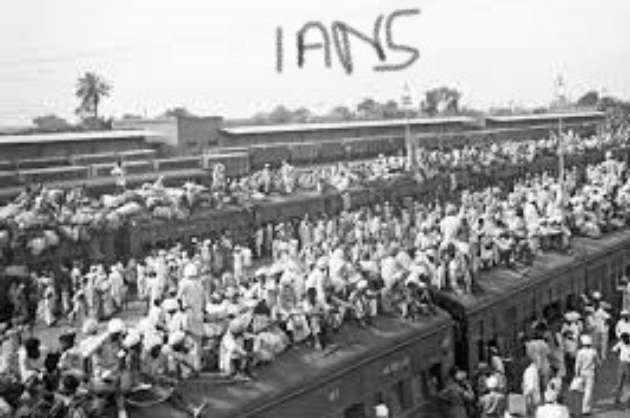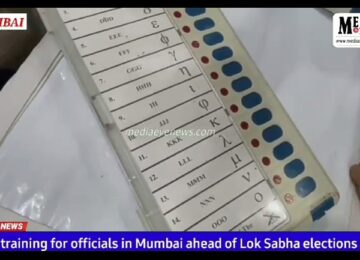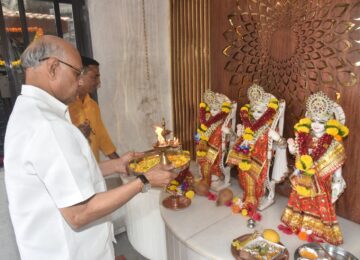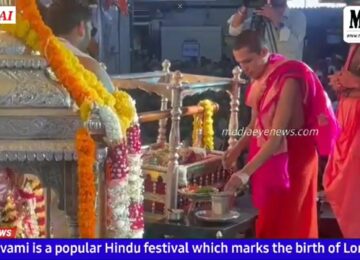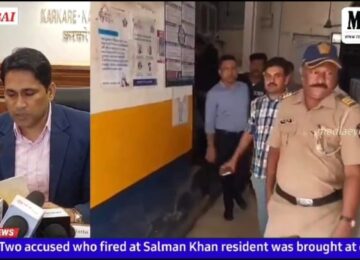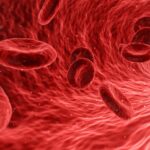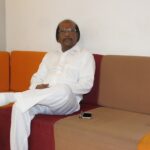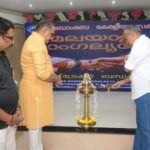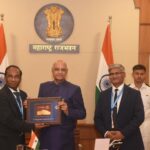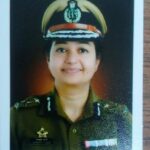Anupama Nair
Nearly 74 years ago, in 1947 began a tale of blood bath, where nearly a million Sikhs, Hindus, and others lost their lives, when they were forced to leave their homeland and move to India. All this happened due to the over-ambition of three men whom I do not want to name here. I am sure even they would have wept to see the blood bath. Did they do anything to prevent it? No would be the answer. They were only witnesses to the millions being killed around them in the border states of Punjab, Bengal and Sind.
From time immemorial we were one – history, civilization, culture, tradition, lifestyle all one. When I opened the history books in my childhood, this is the story it conveyed. It narrated a tale about the “Hominid activity being excavated in the Indian subcontinent and that goes back to over 250,000 years, and how proud we are, to know we are “one of the oldest inhabited regions on the planet”. It taught me to be proud of the Indus Valley Civilization – the world’s first urban civilization, then Takshila University where foreigners came to study (nearly 3500 years ago), then about the great king Puroshattam (Porus), and lastly how my country got the name India from the river Sindhu or Indus. My young heart used to swell with pride when I used to imagine these events. Lahore and Karachi were always ours. However, as you wake up after every dream I too woke up when I saw a serial ‘Buniyad’ and then learnt the bitter truth that Harrapa, Mohenjadaro, Takshila no longer belonged to India, but another country called Pakistan – born on 14th August 1947.
I saw the horrors of Partition in a movie called Tamas and in the serial Buniyad. The sights I saw pained a young heart. How could my great country be divided in two and the division cause the death of many innocent lives? I still have not got any answer and I know for sure I never will. Is there anyone who can answer the questions?
I was reminded of the horrors of Partition, when our great PM tweeted “ August 14 will be remembered as Partition Horrors Remembrance Day in memory of people’s struggles and sacrifices during that period”. Mr. Modi recollected, “Partition’s pains can never be forgotten. Millions of our sisters and brothers were displaced and many lost their lives due to mindless hate and violence. In memory of the struggles and sacrifices of our people, 14th August will be observed as Partition Horrors Remembrance Day”.
He felt that , “May the Partition Horrors Remembrance Day keep reminding us of the need to remove the poison of social divisions, disharmony and further strengthen the spirit of oneness, social harmony and human empowerment.”
However, the question is can those million families who were forced to leave their land, assets, relatives, in Lahore, Karachi, Dhaka and Rawalpindi, and were forced to live in refugee camps in Amritsar, Delhi, Bombay or Calcutta ever forget the horrors of Partition? We need to realize that in our journey to be a superpower we need to move ahead of the Partition horrors.
I am now going to write about the story, Dadu (who left this world a few days before his hundredth birthday) told me. Read on…
The year was 1921 and the place was Lyallpur. A boy was born to Deen Dayal Singh and Meera Bai. They named the boy Raj. Lyallpur became famous within 10 years as ‘Shaheed-e-azam Bhagat Singh’s village’ as he was born there. In 1921, India was still ruled by the British. Raj as a young boy was fond of History and English Literature. He studied in an English boarding school in Shimla. When he completed his Matriculation at the age of 17, he returned to Lahore as a proper ‘brown Sahib’. As a young boy he dreamt of studying Law in England, and so he was enrolled for B.A. in History in National College (started by Lala Lajpat Rai). He at the time, used to think highly about the British and thought greatly about their rule in India. He was well versed in the history of British India.
Near Anarkali Bazar in Lahore, there lived a family whose members, were nationalists unlike Raj’s family. To Ramcharan and Shanti Sharma, a daughter was born in 1925, whom they had named Veera Wali after the goddess Durga. Her grandfather, Gurcharan Sharma was killed in Jallianwala Bagh massacre in 1919. Her paternal uncle Ram Narayan, was a classmate of Bhagat Singh and Sukhdev in National College and he joined the HRA. He was unfortunately, shot dead by the British Police. Her parents and grandmother Rani told her stories of Prithvi Raj Chauhan, Rana Sangha, Rana Pratap, Shivaji Raje, Mangal Pandey and Rani Lakshmi Bai. So, she grew up with love for her motherland and wanted to fight for the Independence of her country.
Their first meeting was like any Bollywood movie “hate at first sight”. She was unimpressed by his English ways and they had many fights about it. She gave him a book about Indian History and reminded him about the martyrdom of Bhagat Singh and others before him. Raj realized that British came to India only to loot India and not for our benefit. He now began to feel a great pride in the great culture, civilization and culture of India. Soon love blossomed between Veera and Raj. Their families were first skeptical but eventually gave their blessing for their marriage. They had made a promise only to get married when India was free from British Imperialism.
That was the time of the Second World War, and Raj saw how Indians were unwillingly forced to join the British. Many Indian soldiers were killed in the battles in Europe. There was Emergency like situation in India. Then one day, from thousands of miles apart he heard the voice of a man telling his countrymen –“Give me blood. I will give you Freedom”. The words stirred patriotism in him and he like Veera decided to join the Freedom Movement.
In 1945, the War was over and the wartime emergencies were removed. Life was slowly returning to normal. Raj had completed his Masters and he had earlier wanted to study for Law in England, but his love for Veera made him change his mind. He decided to study in India. Veera was now studying for her Masters in history and she wanted to be a teacher.
Lahore at this time was bursting with political activity during Independence struggle. Raj and Veera joined the movement and they were filled with hope of ‘dawn of freedom’. The year was 1947. They never realized that it was the last year they would spend in Lahore. They celebrated Basant Panchami, Maha Shivratri, Holi and Janmashtami hardly realizing it would be last time they would be celebrated in their beloved city for the last time.
“Partition – the division of British India into the two separate states of India and Pakistan on August 14–15, 1947, was the ‘last-minute’ mechanism by which the British were able to secure agreement over how Independence would take place”. It was the result of their two hundred years of Divide and Rule policy. Raj and Veera along with other residents of Lahore celebrated Independence Day. People were dancing on the streets on a very rainy day in Lahore. They never realized Lahore was part of Pakistan and soon they would have to leave their beloved city forever.
Raj and Veera soon heard the news, that broke their heart. They were asked to leave their beloved Lahore. They decided to leave for Amritsar with their family. Now a tale of horror unfolded. They began their journey with a heavy heart. “We lost ancestral lands, roots and possessions that mattered most”. Partition caused one of the great ‘convulsions of history’ said Dadu and Dadi as they recalled the events as if it happened yesterday and not 74 years ago. “Moreover, the violence, destruction and human rights abuses that occurred on a vast scale destroyed from the outset the relationship between the two neighboring countries”, was the comment from people who migrated.
Dadu said, “the events occurring in the period of the partition in 1947 are now 74 years old. Most of the adults who lived through this are no longer alive and only few remain today”. He said the younger generation will never understand, even his own children who were born after 1950. “We had experienced a number of traumatic events, ranging from witnessing killings, betrayal by next door neighbors, fleeing their homes under threat of murder, starvation and destitution. Humanity stooped so low that neighbors turned against each other. They were the same who attended wedding ceremonies , funerals and religious festivities in each other’s families, but now didn't hesitate to set ablaze the same house where they had visited in the past as a family member”.
“Then started a massive exodus from Pakistan. However, the greatest tragedy was the fracas that took place throughout the population exchange. At the stroke of midnight on August 14, 1947 two new nations India and Pakistan were born but the partition came at a heavy cost of raging violence”, stated Dadi with tears in her eyes. She continued, “there was mass migration from Pakistan hit by never-ending bloodshed and heavy destruction of properties around us. We were desperate to cross the border from Lahore before we were killed”.
“Cities with railway stations like Lahore and Rawalpindi, witnessed distressing scenes with platforms and trains scattered with bodies. People waiting to catch a train to Amritsar or Delhi were killed. We left the station and decided to leave by road. People were running around with whatever they had — knives, swords, guns, etc. Thousands of people from our village lost their lives and my brother was shot by a crowd, and sadly he died after reaching Amritsar”. Though very young I can still recall the sight of torched houses and blood covered bodies”.
“Somehow, we crossed the border and reached a refugee camp in Amritsar. The life in the camp was very difficult. We lost only one member, my brother and the loss still pains me as I recall how he was killed. The only happy event I can recall is our marriage on February 26, 1948 as we had made a promise to marry only after India was independent. We never wanted our children to ask why were still slaves and what was slavery”, recalled Dadi with emotions in her voice.
Slowly by slowly life became normal. Dadu (Raj) started his law practice and Dadi (Veera) became a teacher. My friend’s dad was born in 1950, and they had two more children. They became adjusted to their lives in New Delhi. Soon, they bought a new house and slowly forgot the tragedy of partition. However, love for Lahore, and a desire to see the city again was still in Dadu’s and Dadi’s heart. New Delhi was a city, which had a huge population of people who came from Pakistan. By the 70’s their children had grown up and had good careers and a family life.
My friend’s dad who was working in a bank was transferred to Mumbai, and they became a Mumbaikar at heart. The family has been living here for more than forty years. Dadu and Dadi said “ we recall the horrors of partition when we see movies like Tamas, or Gadar Ek Prem Katha. However, for us it was real life. We thank God for giving us a good life, mainly a loving family and new loving neighbors”. Hearing Dadu, I started thing of Tara Singh and Sakina in the movie and their love story. Dadu had told me once, “putar, though I lived here most of my life, I would like to see Lahore once more and my ashes immersed there”. Unfortunately, his wish could not be fulfilled as he died in April this year, a few days before he hit a century.
Dadu, I know you are blessing me to write more such stories and I will do that. You will always remain a source of inspiration to me.
(This article is dedicated to my great country – undivided India, the many millions who lost their lives in the horrors of Partition, my source of inspiration, my late Dadu and Dadi and their beloved Lahore).

